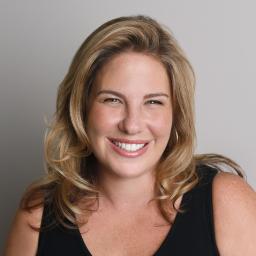Storytelling has always come naturally to me. I see how lives and people and circumstances fit into beautiful, meaningful narratives, and I can package the many layers into digestible-but-nuanced assets with relative ease, save for a few human moments of lagging inspiration. So, telling the profound story of Jewish day schools—such a big part of my family’s life and my professional role—should come easily enough to me.
And yet, there was a time when I was very much in need of convincing. Sending my kids to Jewish day school was a real sticking point for me as I entered the Orthodox Jewish world in my 20s. As a young adult, led only by my values and ideals and not so much by experience, I was certain that public schools were the only choice for my future family. I believe in strong public education, and I wanted my children to have deep connections and relationships to those outside the Jewish community. I almost didn’t make many of the life choices that shaped my beautiful family because I did not want my children to be only with other Jewish children for so much of their lives. It felt counter to everything I believed in.
As I weighed the decision of where to send my kids to school for several years, the internal conflict grew and changed. Community and connection pulled against the other values I hold so deeply. Raised in a secular household myself, I had not learned much of anything Jewish beyond the Passover story, which we rushed through to get to the waiting brisket, so it was hard to imagine exactly what I was missing. However, I knew I wanted my children to have more “Jewish” than I did. I wanted my children to have friends who could play with them on Shabbat to make it more fun, and I wanted them to know all of the stories that make up our heritage. I also wanted them to have an easy inroad to a spiritual life and a connection to God—things I had to work harder for not having the background myself.
Having the true honor of being a day school parent for the last 15 years, and also a day school board president for three, as well as supporting hundreds of day schools through my professional work, I feel so blessed that I made the leap. I made the choice to give my kids the invaluable experience of learning and growing and thriving in Jewish day school, even though it felt so risky and unknown. Like the 72% of families who switched to Jewish day school during Covid just to be in-person and stayed because they loved the experience afforded their children, I am constantly surprised by how valuable my kids’ Jewish education experience really is.
My children have flourished in ways that they never could have in another environment. They have gained skills, knowledge, and life experience that are not possible for Jewish children outside of Jewish schools.
They are able to engage in the complicated discussions about differences and history in an educated, fact-based way. My high school-aged kids have a nuanced understanding of Israeli history and politics, so crucial in this war, and also the language to talk about their Jewish values and how they influence their perspectives on humanitarian issues and devastation worldwide. They’ve also made deep connections with their Jewish and Israeli teachers and peers, and, at the same time, they’ve been gifted with the knowledge and the confidence to build relationships outside their Jewish world and, at times, to navigate the challenging conversations that these relationships can surface.
Most importantly, they have spent the majority of every day in a space where they can be unapologetically Jewish—unapologetically their authentic selves. It is impossible to measure the deep impact this freedom to be themselves has on their confidence and future success. But I am certain that it is invaluable to their ability to stand up for the things they believe in, and identify and speak up against hate wherever it exists.
They’ve also seen firsthand how the Jewish community comes together in times of crisis, and they’ve felt the support so deeply themselves. First during Covid and now, through the clouds of fear and hatred that swirl around them because of their Jewish heritage, they feel the embrace of Jewish community as they seek comfort in hard and scary times. Their schools have been their community through all of the challenging moments in their lives, and they have never failed to be there for them.
In my professional life, I spend most of my days reading and crafting stories about Jewish day schools. As I try to build a communications strategy that represents the full depth and beauty of a day school experience to a world that often underestimates its brilliance, I ask myself, What would have sold me so many years ago? What words could have convinced me that the value of a Jewish day school experience is so fundamental to the growth and life of a Jewish child that it is worth finding other ways to nurture competing ideals held so deeply?
As I try to tease out the messages and themes that will be most compelling, I think about all of the schools and all of the stories. There are so many individual stories, it’s hard to choose just one focus. There are stories told with words. Stories told with images. Stories told through unspoken support and the silent building of communities in times of need and moments of fear. The themes intended to simplify and condense the stories become layered, and nuance gets lost. It feels impossible to weave all of the stories into one and still capture the joy, the comfort, the confidence, and the pure magnitude of impact experienced through a Jewish day school education.
Perhaps, a change of perspective is needed. It’s not really one “day school story” we are trying to tell. It’s 300+ schools’ stories. It’s 90,000 day school students’ stories. It’s hundreds of thousands of parents’ and grandparents’ stories. It’s millions of day school alumni stories. It’s the singular most important story of all—the story of a strong Jewish future.
So how do we tell the story that Jewish day schools ensure a strong Jewish future to those who still need convincing? How do we shout it from the rooftops across North America, and also convey it to the parents showing up to school board meetings because Jewish families feel unsafe? How can we communicate in clear, uncertain terms that Jewish day schools nurture strong, confident alumni who comprise thriving Jewish communities and build deeply connected Jewish families for generations to come? How do we tell the parents and the community leaders that day schools are not just a luxury to be nurtured in times of bounty—that they are a lifeline to a strong Jewish community and a gift to our children?
We must do it through stories. And we can’t tell just one story; we have to tell all of the stories. We have to reach every corner of the community with this simple message: “Come. You will be so grateful that you did.” And then, as a community, we have to invest in making sure that remains true.
We must begin now. This is my story, and my children’s stories, and their children’s stories. Join me. Tell your story.




